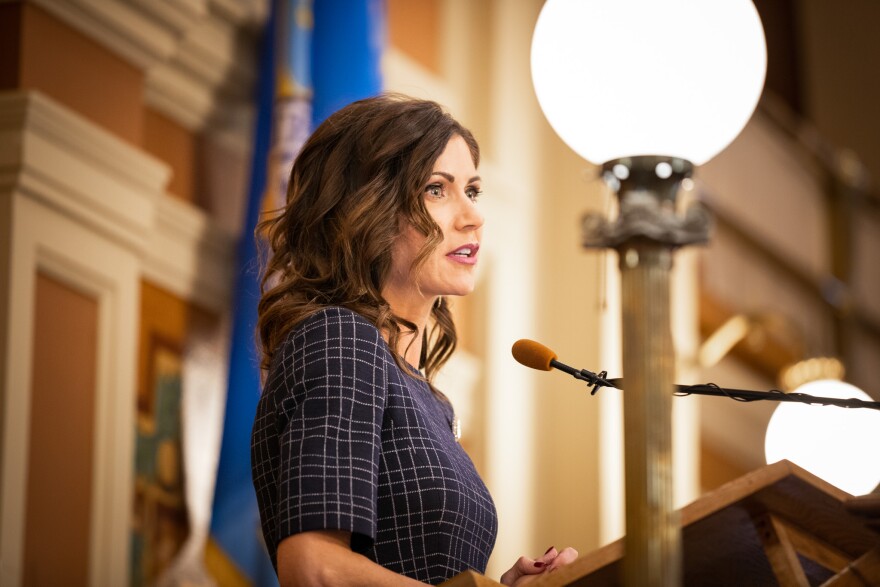Governor Kristi Noem is responding to recent reports about a meeting she had last July that the Associated Press reports included her daughter, the head of the appraiser certification program and other top officials.
“I never asked for special treatment for Kassidy,” Noem tweeted. “Others went through the same process that Kassidy did.”
The AP reports Kassidy Peters initially faced a denial in her quest to upgrade from state-licensed to certified residential appraiser. Months after the reported meeting, Peters received her appraiser license.
“I have heard for years how difficult it is to become an appraiser in South Dakota, making it harder for South Dakotans to purchase a home,” Noem tweeted. “I have been working for years to fix that process, and I signed legislation to that effect this past session.”
I have heard for years how difficult it is to become an appraiser in South Dakota, making it harder for South Dakotans to purchase a home. I have been working for years to fix that process, and I signed legislation to that effect this past session. (2/2)
— Governor Kristi Noem (@govkristinoem) September 29, 2021
One of those bills from last session is House Bill 1015, which allows the Department of Labor and Regulation to establish an appraiser experience training program and set fees for that program.
The bill was introduced by the House Committee on Commerce and Energy at the request of the Department of Labor and Regulation. The Appraiser Certification Program falls under that department.
The bill moved quickly through the legislature and was signed halfway through the 10-week session.
Sherry Bren, then head of the Appraiser Certification Program who reportedly attended a meeting with Governor Noem and her daughter, testified on the bill when it came up in the House and Senate committees.
“Implementation of a training program will result in an increase of the number of credentialed appraisers in the state by providing a viable alternative to the current supervisor training model that is undeniably not working in South Dakota and other states across the nation,” said Bren during the testimony.
Before the session, the state was granted $120,000 from a federal program to make the training program happen.
In order for a trainee to get their appraiser certification, the trainee must have a certain amount of work experience.
Bren said the trainee program would allow for multiple trainees to learn under one appraiser and meet the work requirement.
“Entry-level appraisers that are unable to find a traditional supervisor will instead be able to obtain the necessary appraisal component through a training program administered by the state’s Appraiser Certification Program,” Bren said.
During testimony on the bill, Bren said the training program has three objectives. One, to help foster appraiser certification in places where appraisers are rare. To provide an alternative path for trainees to get work training experience. And three, be an example of how the rest of the country can certify more appraisers.
“Allow the program to serve as a nationwide model for other jurisdictions to utilize,” Bren said.
According to federal emails obtained by SDPB, the idea for the training program came from the Governor's office.
"South Dakota has an idea for a grant request," Bren wrote in an email to the Appraisal Subcommittee on July 10, 2020. "I want to see if it would be conceivable for a state grant. The Governor would like to know as soon as possible."
Those working for the federal program found the training to be an "interesting concept."
"The idea/request came from the Governor's office, so, they're taking it very seriously," said Mark Abbot, the grants director for the Appraisal Subcommittee. "I wonder if we can draw a line between the a lack of appraisers and the State's ability to comply with Title 11?"
Title 11 is a uniform standard set by the federal government to protect real estate transactions. It requires that real estate appraisers are professionals “whose competency has been demonstrated.”
Bren propped up the Appraiser Certification Program in 1991 when federal legislation required states to enact uniform standards for appraisal. Bren ran the program until earlier this year. She says she was forced to retire. She brought an age discrimination complaint against the state and settled for $200,000.
Bren was one of the longest-tenured executive directors with any state-based appraisal regulatory program in the country.


